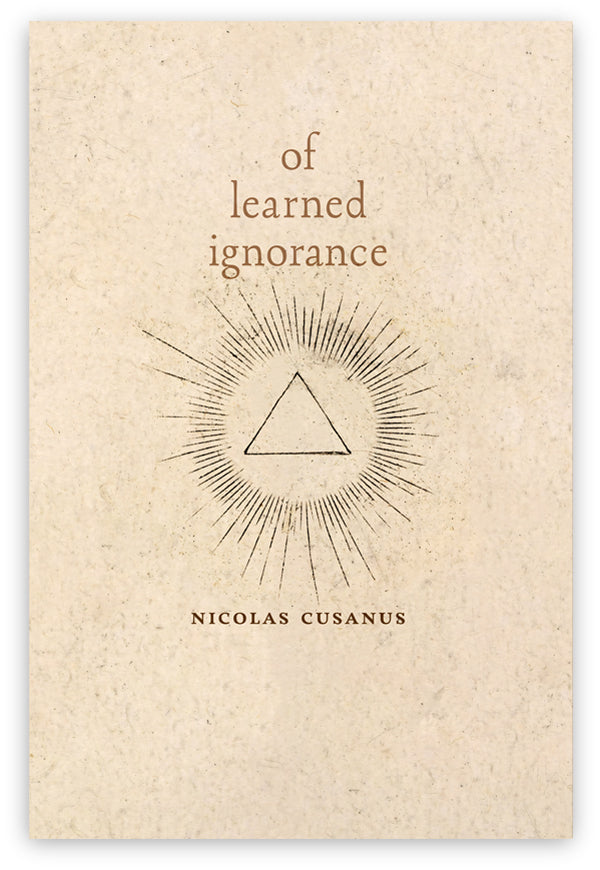Of Learned Ignorance
Of Learned Ignorance
By Nicolas Cusanus
206 pp
Couldn't load pickup availability
About the Book
Written in 1440 by the great theologian and philosopher Nicholas of Cusa, De Docta Ignorantia (Of Learned Ignorance) stands as one of the most unique and influential works of medieval theology. Nicholas stands in stark contrast to his Thomist and Scotist contemporaries, and the crux of this work is his rejection of their penchant for converting mysteries to "problems," problems to which reason can be applied to find a solution. In opposition, he posits that the finite human mind cannot possibly conceive of the inherently infinite divine reality, but through awareness of the limitations of our intellect we can gain the "learned ignorance" that constitutes the title of this work. Although widely read during his time, Nicholas of Cusa's works remained relatively unread until the nineteenth century. Since then, he has been recognized as a unique bridge between medieval and renaissance philosophy, as well as a powerful theologian and spiritual thinker in his own right.


